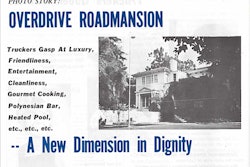 Asked to select the single choice that reflected the best option for reform to mitigate excessive force issues, readers chose the “All of the above” choice in the largest numbers. That included a few options not shown that weren’t singled out by individual respondents. Namely: Requiring racial-bias training for officers nationally and the banning of so-called “no-knock” warrants in drug cases. Source: OverdriveOnline.com poll. Click/tap through the image as needed for a larger version.
Asked to select the single choice that reflected the best option for reform to mitigate excessive force issues, readers chose the “All of the above” choice in the largest numbers. That included a few options not shown that weren’t singled out by individual respondents. Namely: Requiring racial-bias training for officers nationally and the banning of so-called “no-knock” warrants in drug cases. Source: OverdriveOnline.com poll. Click/tap through the image as needed for a larger version.In the wake of the death of George Floyd, an unarmed man accused of passing a counterfeit $20 bill in Minneapolis, an outpouring of protest resulted in police reform measures being proposed at all levels of government, and in some cases being adopted.
Six in 10 Overdrive readers appear to agree that some element of reform is necessary, judging by results from a poll that asked about specific reforms in a House bill unveiled and in ongoing discussions that proposes national standards for policing.
Readers offered others. One commenter, going by Jerry emphasized the need at local/state levels for a clear chain of custody with access for the judicial branch (including a suspect’s attorney) to defendant complaints. He believed post-incident processes today, when it comes to citizen complaints about officers, rest on little more than “altruistic belief” that the complaints will not be covered up by a self-interested bureaucracy.
“Visible documentation on where this complaint is at all times,” he said, could expose problem actors within police departments.
Another measure might weed them out, said another commenter, Chip. “Require all police officers to carry personal liability insurance. Not the jurisdiction, not the taxpayers, the officers themselves.”

The case of George Floyd, he believed, is “a prime example,” with the officer in question having a clear history of complaints and incidents. “He shouldn’t have been working as a cop, and if the police won’t weed out bad cops themselves, an insurance company can deem them uninsurable.”
A minority of readers, however, saw little hope of mitigating excessive-force issues without a broader look beyond race and individual policing reforms. “Unlike many people today, I do not see a black and white problem. Maybe that comes with age or maybe it comes with being part of an industry that has been looked down upon by society for so long,” one commenter wrote, adding that racial disparities were sometimes sensationalized by the media to the exclusion of other brutality cases where race was not at play.
“Additional training and better vetting of police officers” if nothing else would be “a step in the right direction. There are many cases that the media failed to hype that are coming out now. Excessive force is being used by some to detain those that choose to flee or do not respect the badge in other ways. It is so hard for any of us to say how we would have handled the situation, but it is so easy to armchair quarterback after the fact.”
Chip added nothing will change until the “blue line culture” itself does. “This is the culture where cops don’t testify against other cops, lie for other cops, and cover for bad cops. The problems we face today with police aren’t new problems. It’s been around for years. Cops have changed, chiefs have changed, politicians have changed, and reforms have been made but the one constant is the blue line culture. It needs to end before any change will be effective.”









